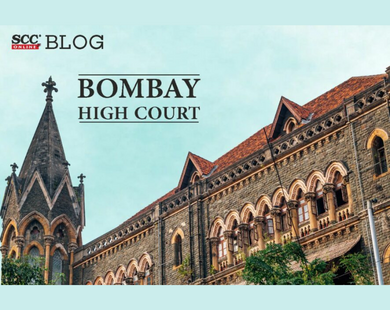Bombay High Court: In a petition filed by MEP Infrastructure Developers Limited (MEPIDL) (petitioner) challenging the impugned notices and warrants of distress issued by South Delhi Municipal Corporation (MCD) (respondent), for recovery of a large sum of money that is due from MEPIDL, a division bench of G S Patel and S G Dige, JJ., refused to exercise discretionary powers Article 226 because granting relief to MEPIDL would be entirely inequitable in the facts and circumstances of the case.
According to the MCD, a statutory body governed by the Delhi Municipal Corporation Act, 1957 (‘the Act’), MEPIDL, a Mumbai-based enterprise, made a bid for the collection of toll tax from all MCD toll gates/check posts at the many entry points into Delhi. The parties executed a contract that required MEPIDL to make a specified weekly remittance to the MCD. The grievance of the MCD is that MEPIDL failed to make these remittances which led to MCD terminating the contract.
MEPIDL filed a writ petition challenging the termination before Delhi High Court which was dismissed. MCD issued distress warrants out of which one was challenged by MEPIDL before Delhi High Court wherein no stay was granted.
MIPEDL filed the present petition as the local authorities issued notices of attachment of MEPIDL’s assets within this Court’s jurisdiction. As per a communication from the Tehsildar and the Executive Magistrate Kalyan to the Manager of the State Bank of India and the Manager of the Dombivli Nagari Sahakari Bank Ltd to freeze two accounts which states that there is a Revenue Recovery Certificate and if the demand is not paid, the amount of the Revenue Recovery Certificate will be recovered as arrears of land revenue under the Maharashtra Land Revenue Code 1966.
On the submission by the petition that the toll tax claimed by the MCD is not an arrear of land revenue at all, the Court refuses the contention as it isolates Section 455 of the Act from Section 156 and the corresponding Eighth Schedule. Thus, the tax due can be recovered under an Eighth Schedule warrant by distress and sale of movable property or the attachment and sale of immovable property of the defaulter. There is no geographical restriction in Section 156 of the Act limiting the action to assets in Delhi.
On another submission made by the petitioner that the Tehsildar was required to “satisfy himself” before issuing either of the impugned notices, the Court observed that once the Tehsildar or the Collector has received the Revenue Recovery Certificate, he necessarily had to act on it. Section 3(3) of the Revenue Recovery Act is unambiguous in that regard and thus, there is no question of discretion in the hands of the Tehsildar.
The Court remarked that now that it has failed to get any protection from the Delhi High Court, MEPIDL has set about trying to stymie all recovery proceedings by assailing a ministerial order and thus reducing even the proceedings in the Delhi High Court to an idle formality.
The Court opined that it was not shown before the Court in unequivocal terms that the Tehsildar has acted illegally, unlawfully or in any manner that warrants the exercise of discretion of the present Court in issuing a high prerogative remedy. “Merely because it is uncomfortable for MEPIDL is not a ground to interfere. If this is a purely contractual dispute, as counsel for petitioner himself suggests it is, then MEPIDL’s remedies lie elsewhere and not in our Writ Court.”
The Court concluded that it is not the case whether this Court has jurisdiction, especially territorial jurisdiction under Article 226(2), but whether the jurisdiction is required to be exercised on the facts and in the circumstances of this case and noted that almost everything, in this case, militates against the exercise of jurisdiction in favour of MEPIDL.
The Court held that granting relief to MEPIDL would, we believe, be entirely inequitable in the facts and circumstances of the case.
In the words of the Court “To put it a little colloquially and to put a lid on it, we made it clear to Mr Dhond (counsel for petitioner) that in any such matter involving a matter of commerce or even high commerce, it is now our almost invariable practice to first ask that the amount be deposited. Mr Dhond is clear that he is unable to do anything of the kind. If that be so, then to his request that we grant him a writ, we must answer in the same coin, that we too are unable to do anything of the kind.”
[MEP Infrastructure Developers Limited v. South Delhi Municipal Corporation, 2023 SCC OnLine Bom 306, decided on 01-02-2023]
Advocates who appeared in this case :
For the petitioner in WP 10304/2022- Mr Venkatesh Dhond, Senior Advocate, with Rashmin Khandekar, Deepak Deshmukh, Swati Singh & Vivek Dwivedi, i/b Naik Naik & Co.;
For respondents nos. 1 to 5 in both WP 10304/2022- Mr Gaurav Joshi, Senior Advocate, with Sanjay Vashishtha, Shreyas Shrivastava, Tanmay Bidkar & Yogesh Devnani.
*Arunima Bose, Editorial Assistant has reported this brief.






